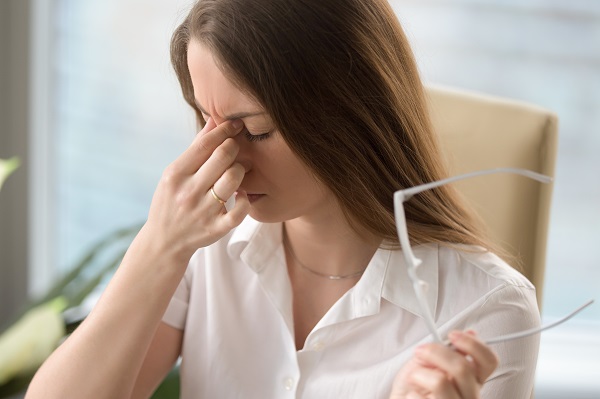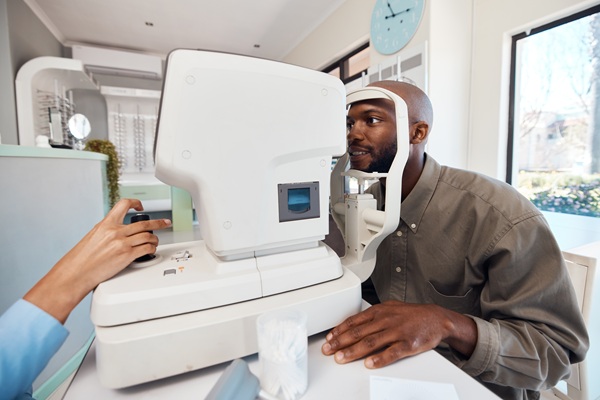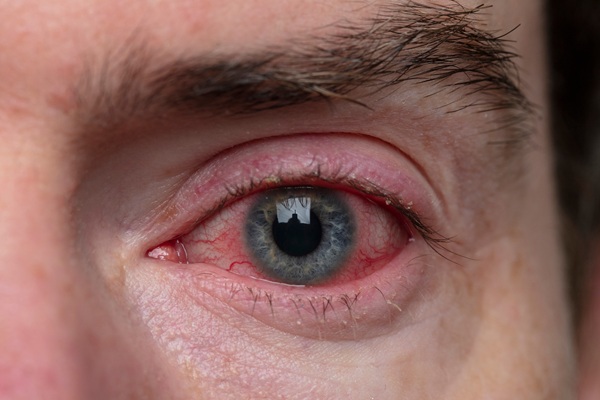Chronic Dry Eye FAQs

Dry eye occurs when there is inadequate lubrication or moisture on the eye’s surface. This may happen for a number of reasons, such as environmental factors, lifestyle choices, work conditions, certain medications or some illnesses. When it constantly reoccurs or becomes a consistent problem, then it is known as chronic dry eye. Here are some FAQs to address some of the pressing questions you may have.
The causes
Many underlying factors contribute to dry eye episodes or the ongoing problem.
What diseases cause dry eyes?
Chronic dry eyes may often result from not just the disease itself but also the medications used to treat it. That said, here is a list of just some of the many diseases commonly associated with chronic dry eye:
- Lupus
- Diabetes
- Scleroderma
- Seasonal allergies
- Rheumatoid arthritis
- Diseases involving the thyroid
What medications cause dry eye?
Birth control pills, hormone replacement therapy, antidepressants and even acne medication may result in dry eyes. Check the side effects or warnings for medication to see which ones may be the culprit.
What work conditions cause chronic dry eye?
Staring at a computer, tablet or phone screen for long hours without blinking may cause chronic dry eyes. Because of this, writers, producers, gamers, programmers and corporate workers tend to be easily affected. That said, environmental factors such as smoke, wind and dry air may also lead to chronic dry eyes for blue collar workers.
Does age have anything to do with it?
Yes, the older people become, the fewer tears the eye produces. This may leave the eye’s surface exposed, leading to discomfort. Age is also the most common cause for dry eyes.
The treatment options
Luckily, there are a wide variety of options available to treat chronic dry eye problems. Some of these can be self-administered without medical attention, while others may require a prescription. Here are the answers to some important questions about treatment options.
What are some good home remedies or over-the-counter options?
It depends on the underlying reason. Patients who know the source of the dryness may make changes based on this, such as spending less time in front of the computer or changing medications. Artificial tear drops may also provide relief, while some people say cold and hot presses over the eyes work wonders.
How do doctors diagnose dry eyes?
Some doctors may make a diagnosis based on a patient’s described symptoms and the appearance of the eyes. Other times, doctors may use special blotting strips for a more accurate diagnosis. This measures the volume of tears a person produces over a period of time, usually five minutes.
What can a doctor do to treat chronic dry eye?
After a positive test, doctors may prescribe a number of solutions. The three most effective include eye inserts, scleral lenses and punctal plugs.
Get help today
While not usually considered a serious illness, chronic dry eyes may lead to serious problems later on. Sometimes the cornea becomes damaged from the inadequate moisture, which could lead to ulcerations. In addition to this, many people suffer discomfort so terrible that it affects their work and even the ability to drive safely or operate machinery. If you suffer from dry eye symptoms, get help today.
Request an appointment here: https://www.texasoptical.net or call Texas Optical at (214) 771-7333 for an appointment in our Dallas office.
Check out what others are saying about our services on Yelp: Read our Yelp reviews.
Recent Posts
Contact lens exams are fundamental to maintaining clear vision and promoting overall eye health. Many individuals rely on contact lenses for daily activities, sports, and social events, yet consistent monitoring of lens fit and eye condition often receives less attention than it deserves. An optometrist specializing in evaluating the cornea, tear film, and general ocular…
Red, irritated eyes can result from something as simple as fatigue or dryness. However, persistent or severe symptoms may indicate a more serious condition requiring red eye treatment from an optometrist. Understanding when those everyday symptoms become something more serious is key to protecting long-term vision and avoiding complications. Catching the signs early on and…
Vision health is an important part of your everyday life. When urgent and unexpected issues arise, you must seek emergency eye care from an optometrist. Whether the issue results from trauma, infection, or sudden changes, immediate attention from an optometrist can prevent complications and preserve your long-term ocular health.Individuals may need emergency eye care for…
A myopia optometrist can help manage and slow the progression of nearsightedness, especially in children and young adults. Nearsightedness, or myopia, causes distant objects to appear blurry while close-up vision remains clear. Without proper care, myopia can worsen over time, leading to higher prescriptions and an increased risk of eye health problems.Myopia occurs when the…


